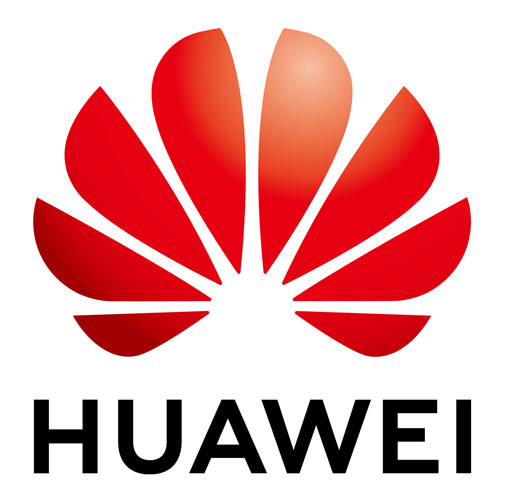Susanna Mornati
- 4Science s.r.l.
- https://www.4science.it/
Gestire i dati della ricerca a livello di Ateneo: l'esperienza dell'Università Statale di Milano
 Susanna Mornati è COO di 4Science, Italia. Ha una vasta esperienza nella progettazione e realizzazione di sistemi informativi per la ricerca, maturata in trent'anni trascorsi presso l'Università di Milano, il CERN e consorzi universitari per l'ICT. Con la sua esperienza nel campo della ricerca, nel 2015 ha diretto il programma di implementazione di DSpace-CRIS (IRIS) presso 67 istituti di ricerca e HE italiani e il progetto IRIDE per l'adozione di ORCiD a livello nazionale in Italia. coinvolgendo 60.000 ricercatori e realizzandoli con successo in pochi mesi. Susanna si è guadagnata una reputazione internazionale nelle comunità Open Science, partecipando a board e comitati scientifici, presentando a numerosi eventi. E' membro della Research Data Alliance (RDA), del COAR Controlled Vocabularies Board, dei DSpace Leadership and Steering Groups, dell'euroCRIS CRIS-IRs Task Group, dell'Associazione Italiana per la Scienza Aperta (AISA), dell'Italian Open Science Support Group (IOSSG).
Susanna Mornati è COO di 4Science, Italia. Ha una vasta esperienza nella progettazione e realizzazione di sistemi informativi per la ricerca, maturata in trent'anni trascorsi presso l'Università di Milano, il CERN e consorzi universitari per l'ICT. Con la sua esperienza nel campo della ricerca, nel 2015 ha diretto il programma di implementazione di DSpace-CRIS (IRIS) presso 67 istituti di ricerca e HE italiani e il progetto IRIDE per l'adozione di ORCiD a livello nazionale in Italia. coinvolgendo 60.000 ricercatori e realizzandoli con successo in pochi mesi. Susanna si è guadagnata una reputazione internazionale nelle comunità Open Science, partecipando a board e comitati scientifici, presentando a numerosi eventi. E' membro della Research Data Alliance (RDA), del COAR Controlled Vocabularies Board, dei DSpace Leadership and Steering Groups, dell'euroCRIS CRIS-IRs Task Group, dell'Associazione Italiana per la Scienza Aperta (AISA), dell'Italian Open Science Support Group (IOSSG).
 Susanna Mornati is COO at 4Science, Italy. She has extensive experience in the design and implementation of information systems for research, gained in thirty years spent at the University of Milan, CERN and university consortia for ICT. With her vast expertise in the research domain, in 2015 she directed the program of implementing DSpace-CRIS (IRIS) at 67 Italian HE and research institutions and the IRIDE project for ORCiD adoption at the national level in Italy. Both projects involved over 60,000 researchers and were successfully achieved in just a few months. Susanna has gained an international reputation in the Open Science communities, participating in scientific boards and committees, and a speaker at numerous events. She is a member of the Research Data Alliance (RDA), the COAR Controlled Vocabularies Board, the DSpace Leadership and Steering Groups, the euroCRIS CRIS-IRs Task Group, the Italian Association for Open Science (AISA), the Italian Open Science Support Group (IOSSG).
Susanna Mornati is COO at 4Science, Italy. She has extensive experience in the design and implementation of information systems for research, gained in thirty years spent at the University of Milan, CERN and university consortia for ICT. With her vast expertise in the research domain, in 2015 she directed the program of implementing DSpace-CRIS (IRIS) at 67 Italian HE and research institutions and the IRIDE project for ORCiD adoption at the national level in Italy. Both projects involved over 60,000 researchers and were successfully achieved in just a few months. Susanna has gained an international reputation in the Open Science communities, participating in scientific boards and committees, and a speaker at numerous events. She is a member of the Research Data Alliance (RDA), the COAR Controlled Vocabularies Board, the DSpace Leadership and Steering Groups, the euroCRIS CRIS-IRs Task Group, the Italian Association for Open Science (AISA), the Italian Open Science Support Group (IOSSG).
SESSIONE 6. EOSC and Go for FAIR: research data and infrastructures
Gestire i dati della ricerca a livello di Ateneo: l’esperienza dell’Università Statale di Milano
 ’Università degli studi di Milano è il più grande ateneo lombardo e uno dei maggiori in Italia, nonché l'unico ateneo italiano a far parte della LERU (League of European Research Universities). Da osservatore della scena internazionale si è trovata ad assistere a una serie di attività sui dati della ricerca a livello europeo e al tiepido recepimento, a livello nazionale, di politiche decisamente orientate verso la apertura dei processi della ricerca.
Fra le raccomandazioni riguardanti l’Open Science emanate dalla Commissione Europea, la gestione dei FAIR data è uno dei principali pilastri identificati dalla LERU nella roadmap per le università. Le singole istituzioni hanno una responsabilità nella raccolta, gestione, cura, conservazione e trasmissione del patrimonio della conoscenza, inclusi i dataset.
Per avviare il progetto sono stati intervistati i ricercatori di varie discipline e sono emersi i requisiti principali: necessità di supporto tecnologico, necessità di formazione, necessità di supporto giuridico.
In merito al supporto tecnologico abbiamo cercato di individuare e mettere a disposizione dei ricercatori uno strumento che potesse soddisfare i requisiti richiesti a livello internazionale, che fosse open source, che potesse anche interfacciarsi con altri strumenti dell’ateneo. La scelta è caduta su Dataverse, una piattaforma gratuita open source nata all’Università di Harvard e adottata da prestigiose istituzioni di tutto il mondo. A seguito di un progetto pilota organizzato in ateneo e durato un anno, all’inizio del 2019 si è passati alla fase di produzione. L’installazione di Dataverse è stata affidata in outsourcing a 4Science, unica realtà italiana che collabora con la community internazionale di Dataverse e offre servizi in cloud.
L’intervento spiega come si è arrivati alla scelta di Dataverse e perché si è deciso di utilizzare uno strumento diverso dal repository istituzionale, quali sono state le criticità, quali sono i benefici attesi da questo nuovo approccio.
’Università degli studi di Milano è il più grande ateneo lombardo e uno dei maggiori in Italia, nonché l'unico ateneo italiano a far parte della LERU (League of European Research Universities). Da osservatore della scena internazionale si è trovata ad assistere a una serie di attività sui dati della ricerca a livello europeo e al tiepido recepimento, a livello nazionale, di politiche decisamente orientate verso la apertura dei processi della ricerca.
Fra le raccomandazioni riguardanti l’Open Science emanate dalla Commissione Europea, la gestione dei FAIR data è uno dei principali pilastri identificati dalla LERU nella roadmap per le università. Le singole istituzioni hanno una responsabilità nella raccolta, gestione, cura, conservazione e trasmissione del patrimonio della conoscenza, inclusi i dataset.
Per avviare il progetto sono stati intervistati i ricercatori di varie discipline e sono emersi i requisiti principali: necessità di supporto tecnologico, necessità di formazione, necessità di supporto giuridico.
In merito al supporto tecnologico abbiamo cercato di individuare e mettere a disposizione dei ricercatori uno strumento che potesse soddisfare i requisiti richiesti a livello internazionale, che fosse open source, che potesse anche interfacciarsi con altri strumenti dell’ateneo. La scelta è caduta su Dataverse, una piattaforma gratuita open source nata all’Università di Harvard e adottata da prestigiose istituzioni di tutto il mondo. A seguito di un progetto pilota organizzato in ateneo e durato un anno, all’inizio del 2019 si è passati alla fase di produzione. L’installazione di Dataverse è stata affidata in outsourcing a 4Science, unica realtà italiana che collabora con la community internazionale di Dataverse e offre servizi in cloud.
L’intervento spiega come si è arrivati alla scelta di Dataverse e perché si è deciso di utilizzare uno strumento diverso dal repository istituzionale, quali sono state le criticità, quali sono i benefici attesi da questo nuovo approccio.
Managing Research Data at the Institutional Level: the Experience of the University of Milan
 The University of Milan is the largest university in Lombardy and one of the largest in Italy, and the only Italian university to be part of the LERU (League of European Research Universities). As an observer on the international scene, it has witnessed a series of activities on research data at European level and the lukewarm transposition, at national level, of policies decidedly oriented towards the opening up of research processes.
Among the recommendations concerning Open Science issued by the European Commission, the management of FAIR data is one of the main pillars identified by LERU in the roadmap for universities. Individual institutions have a responsibility for the collection, management, care, preservation and transmission of knowledge assets, including datasets.
In order to start the project, researchers from various disciplines were interviewed and the main requirements emerged: need for technological support, need for training, need for legal support.
With regard to technological support, we have tried to identify and make available to researchers a tool that could meet the main requirements: to be international, open source, with interfaces for other systems at the university. The choice fell on Dataverse, a free open source platform born at Harvard University and adopted by prestigious institutions around the world. Following a one-year pilot project at the university, the production phase was completed at the beginning of 2019. The installation of Dataverse has been outsourced to 4Science, the only Italian organization that collaborates with the international community of Dataverse and offers services in the cloud.
The presentation explains how the choice of Dataverse came about and why it was decided to use a tool other than the institutional repository, what were the criticalities, what are the benefits expected from this new approach.
The University of Milan is the largest university in Lombardy and one of the largest in Italy, and the only Italian university to be part of the LERU (League of European Research Universities). As an observer on the international scene, it has witnessed a series of activities on research data at European level and the lukewarm transposition, at national level, of policies decidedly oriented towards the opening up of research processes.
Among the recommendations concerning Open Science issued by the European Commission, the management of FAIR data is one of the main pillars identified by LERU in the roadmap for universities. Individual institutions have a responsibility for the collection, management, care, preservation and transmission of knowledge assets, including datasets.
In order to start the project, researchers from various disciplines were interviewed and the main requirements emerged: need for technological support, need for training, need for legal support.
With regard to technological support, we have tried to identify and make available to researchers a tool that could meet the main requirements: to be international, open source, with interfaces for other systems at the university. The choice fell on Dataverse, a free open source platform born at Harvard University and adopted by prestigious institutions around the world. Following a one-year pilot project at the university, the production phase was completed at the beginning of 2019. The installation of Dataverse has been outsourced to 4Science, the only Italian organization that collaborates with the international community of Dataverse and offers services in the cloud.
The presentation explains how the choice of Dataverse came about and why it was decided to use a tool other than the institutional repository, what were the criticalities, what are the benefits expected from this new approach.







